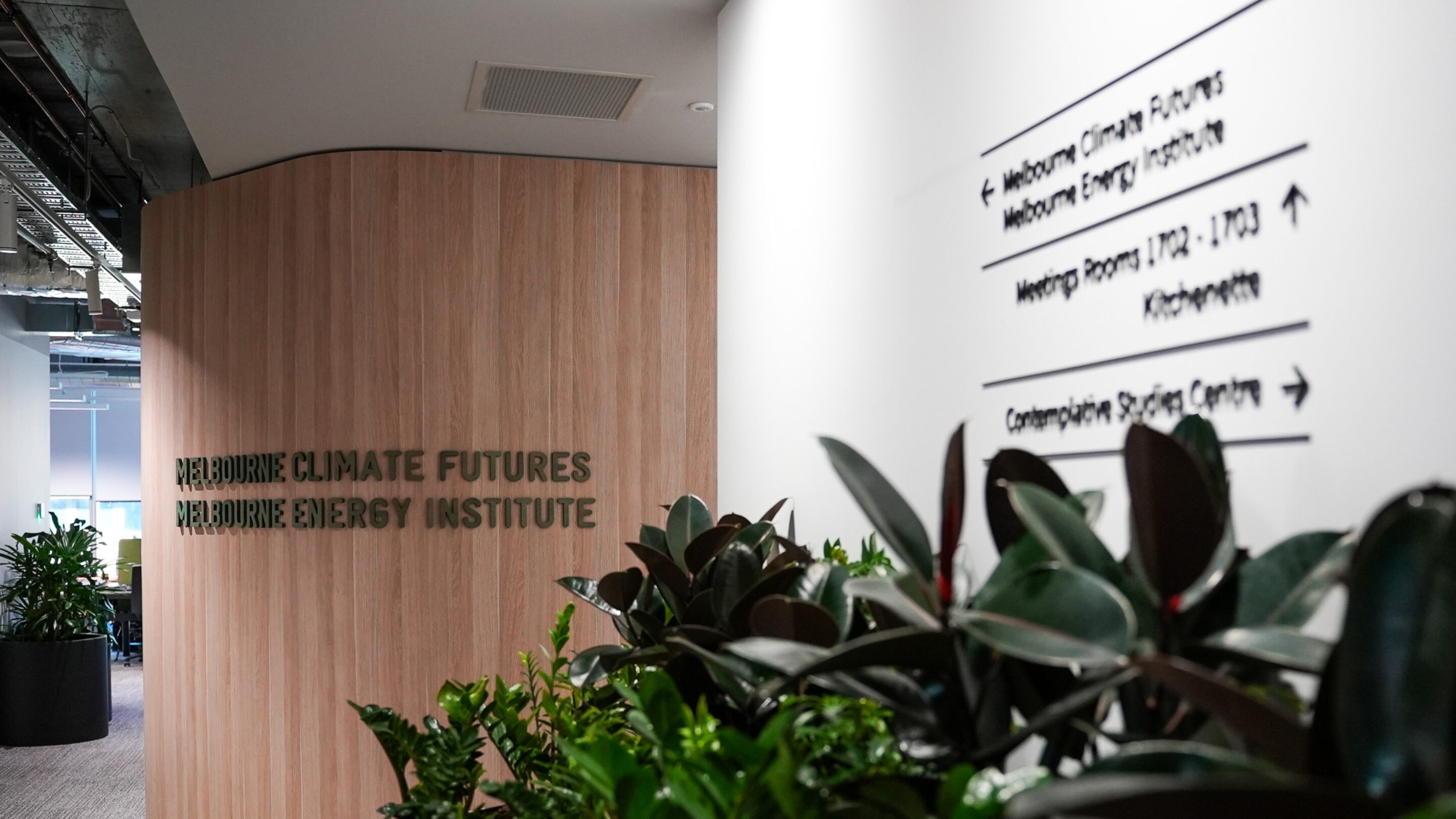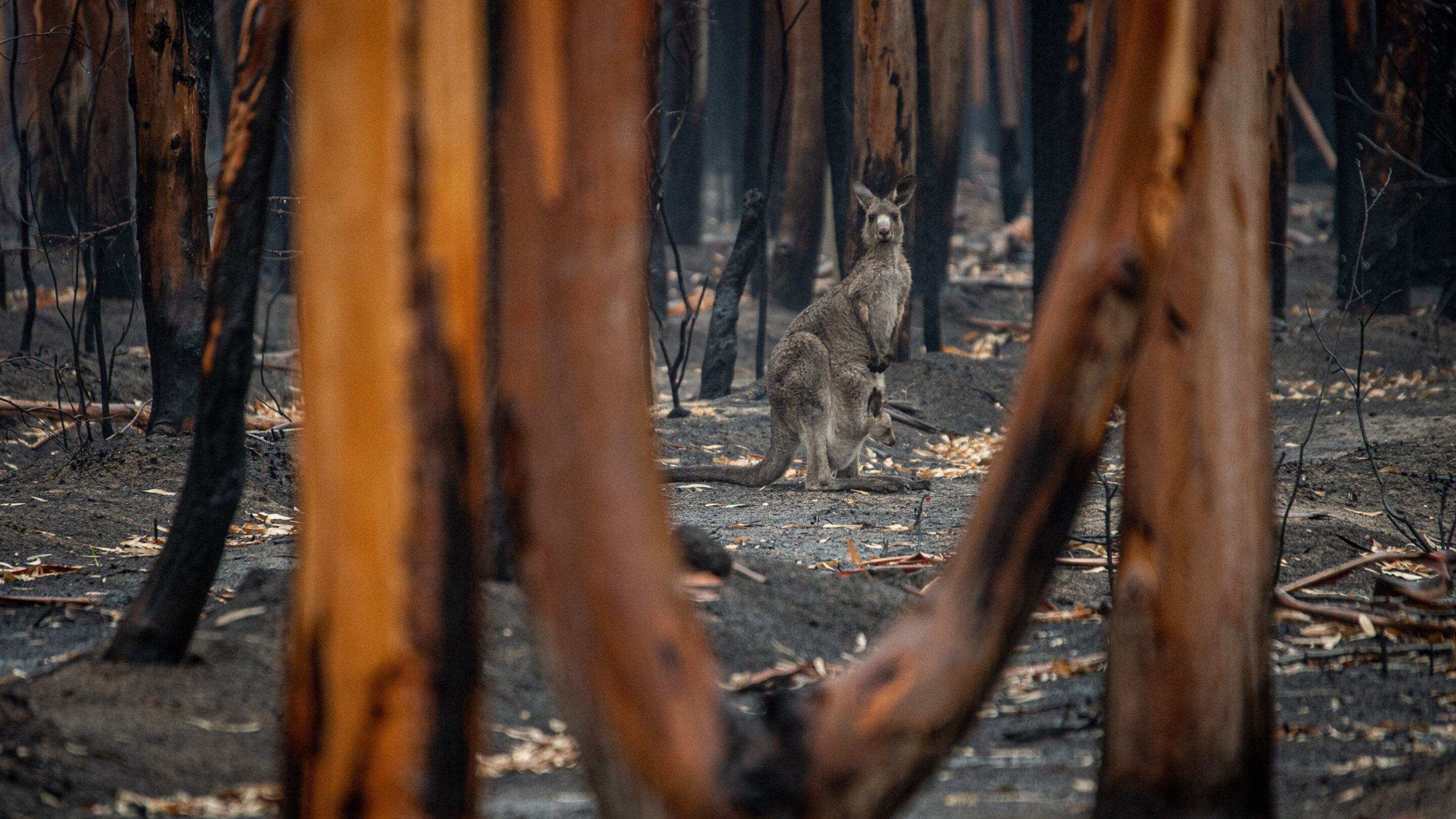

Melbourne Climate Futures Academy (MCFA) was born out of the idea to empower future generations of climate researchers to work toward solutions that will have a direct effect on their lives.
We spoke with the team at MCFA to learn more about the goals of the Academy, how they work alongside the researchers at Melbourne Climate Futures, and hear about some of the projects they are working on at the moment.

1. What is the mission of the Melbourne Climate Futures Academy and why was the MCFA created?
Climate change particularly affects younger generations, who often feel excluded from the policy discussions that will directly affect their own futures.
The MCFA was launched in July 2022 at Melbourne Connect to nurture and empower the next generation of climate researchers and leaders. It is an interdisciplinary fellowship of early career researchers whose expertise focuses on finding solutions to the climate problem.
The Melbourne Climate Futures Academy offers strategic scholarships for MCF-supported Ph.D. students recruited in priority areas. It hosts both early-career and mid to late-career visiting researchers and provides research space, training, seminars, networks and experience for young researchers to thrive, and to strive for a positive climate future.
2. How does MCFA work alongside Melbourne Climate Futures to help achieve strategic goals for climate research at the University of Melbourne?
Climate change is a complex challenge and solutions cannot be found in just one or two disciplines. The University of Melbourne is uniquely positioned to draw on the depth and breadth of research and expertise at our disposal to empower future climate researchers and become a leading voice in Australia and the Indo-Pacific region.
Importantly, our MCFA fellows are not just early-career researchers. They also include both University of Melbourne and visiting fellows, whose deep and extensive experience helps enrich the knowledge and networks available in MCFA.
By creating a cooperative, interdisciplinary research environment, MCF aims to help our academy researchers build the skills, knowledge, and networks to develop holistic solutions to the climate challenge that are greater than the sum of their parts.

3. What are some of the areas of climate expertise that Ph.D. students bring to MCFA?
One of MCFA’s key strengths lies in the diverse array of disciplines in which our fellows research. We host Ph.D. and early-career researchers who explore fields as varied as climate change science, green energy transitions, just and responsible land use, economic and financial challenges and opportunities, health and wellbeing impacts, natural disaster resilience, climate change communication, climate litigation, and policy and legislation implications – just to name a few.
4. Can you tell us a bit about some of the exciting research projects that are currently taking place with the team at MCFA?
There is a hive of interdisciplinary activity at MCFA!
Earlier this year, Clare Walter (a Ph.D. candidate focusing on public health, air pollution, and policy) and Dr Kelvin Say (who researches opportunities from decentralising energy resources), collaborated to scale the latest research on the health impacts of traffic pollution to the Australian population, revealing the vast and critical consequences. The research is driving advocacy for improved vehicle carbon dioxide standards in Australia.
Elsewhere, MCFA fellow Theo Mendez is examining how Australia can strengthen its ambitions to become a green energy superpower by working more closely with foreign partners such as South Korea and Japan to develop green hydrogen technology and establish mutually beneficial export–import strategies.
And Pia Treichel recently completed a Ph.D. thesis examining if and how international climate finance, such as the Green Climate Fund, supports the efforts of developing countries to respond and adapt to climate change.
